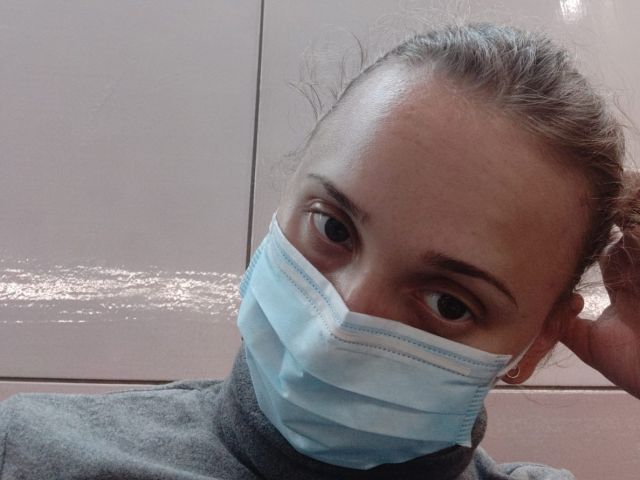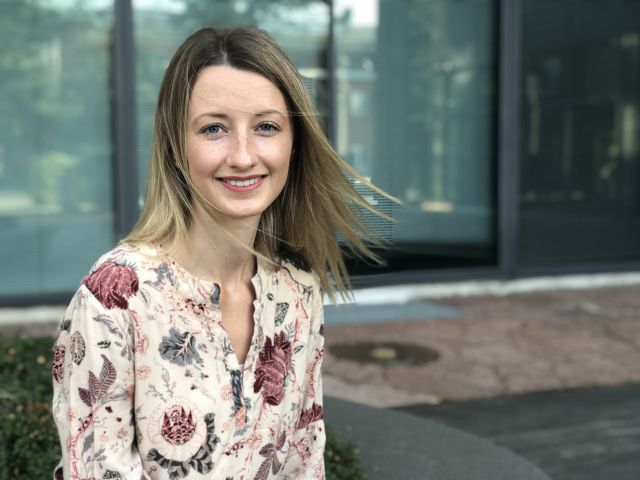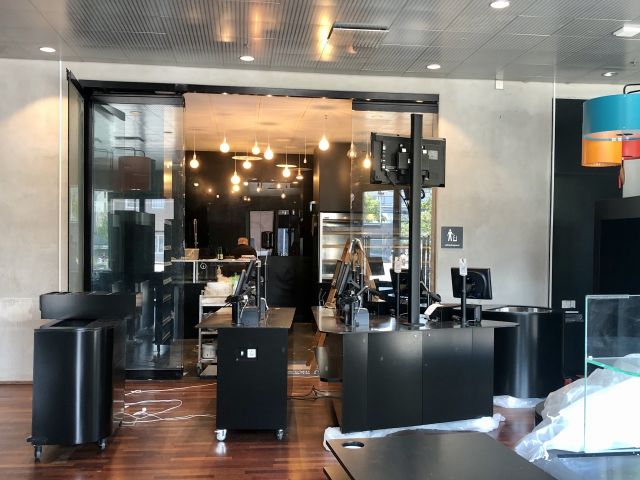Coronavirus has serious consequences for exchange trips: “Hopefully, we’ll be back to normal in two or three years”

The Vice Dean of International Education reflects on the future of exchange trips in the shadow of coronavirus. (Illustration: Shutterstock)
234 students are studying abroad on exchange trips this semester. The figure last autumn was 1,088. Martin Jes Iversen, Vice Dean of International Education, reflects on what he calls the “unfortunate and terrible” consequences of coronavirus for exchange trips. However, there is light in the dark for students hoping to go on exchange.
The autumn semester is usually the busiest for exchange trips. Last year, 639 students from other universities came to CBS to study for a semester, while 1,088 CBS students went abroad.
Because of the widespread coronavirus, nowhere near as many are taking exchange trips this autumn semester. 234 students are going abroad, while CBS is welcoming 218 students.
“The figures reflect the serious situation the world is facing. Our partner universities in North and South America, Australia, Canada and Asia have all closed down the international student mobility, and many of them are not opening for students from abroad in the autumn semester. It’s very unfortunate and terrible,” says Martin Jes Iversen, the Vice Dean of International Education at CBS and continues:
“Hopefully, we’ll be back to a more normalized situation in two or three years.”
The students who are going on exchange trips are studying mainly at universities in Europe, and the incoming students are also primarily from Europe.
And according to Martin Jes Iversen, more CBS students who want to go on exchange should consider the possibilities in Europe, as partner universities in Australia and the U.S. are not likely to reopen anytime soon.
“For many students, exchange trips add something extra to their studies, in addition to providing a personal experience. But there are other ways to give your program an international touch. You can attend summer schools or follow online electives at other universities,” says Martin Jes Iversen.

He knows that following an elective online is not the same as studying abroad, of course, so he encourages anyone who is really reluctant to give up hope of an exchange trip to look at the opportunities in Europe.
“Attending a university in the U.S. or Australia is on many students’ wish lists, but we have a lot of great arrangements with partner universities in Europe that can also give students personal and cultural experiences, as well as unique academic input,” he says.
According to Martin Jes Iversen, the lower number of exchange students coming to CBS does not have a financial consequence, as CBS has enrolled more students all together.
Being international in times of COVID-19
When the world closed down, several issues appeared for students abroad. Firstly, students abroad wanting to return to Denmark needed help and the right documents to cross the border while they figured out how to finish their semesters online. Next up came concerns about the autumn semester.
If students with planned semesters abroad could not travel, they had to apply for electives at CBS, and this could potentially leave CBS short of places on certain electives, explained Martin Jes Iversen in April.
According to Martin Jes Iversen, all students who were supposed to study abroad but have had their exchange trips cancelled, now have elective places at CBS.
“I know that some students have complained about being unable to choose from the full range of electives, as they applied later than usual, but we have done what we can to meet the students’ wishes and devise alternatives,” he says.
For example, CBS has collaborated with the University of St. Gallen in Switzerland and Vienna University of Economics and Business (WU) to enable its students to apply for a range of electives across the three universities. Especially the students from St. Gallen and WU have “rushed” to apply for the electives at CBS, while according to Martin Jes Iversen, CBS students have been more hesitant.
“I think the lower number of CBS students can be explained by the application deadlines, which were a little earlier at CBS, and maybe at that time, people were waiting to see if they still had a chance to go abroad. But we won’t give up looking into alternatives for the students to make their degrees international,” he says.
CBS is still an attractive university for international students, and shows that COVID-19 has not been a deterrent
Martin Jes Iversen
Another issue that CBS is still dealing with concerns programs with mandatory exchange trips. This applies to the GLOBE program, the BSc in International Shipping and Trade, as well as some master’s programs.
Martin Jes Iversen explains that these programs are trying to reschedule and postpone exchange trips, as well as running planned exchanges as online electives in the hope that the students can study abroad next spring perhaps.
“It’s not optimal in any way, but we expect and hope that the students can start studying abroad from next spring. Maybe not for a full semester, but if they could at least just go for a couple of weeks or a month, that would be great. But again, we’ll have to wait and see, planning and rescheduling as we go,” he says.
Making new possibilities
Before COVID-19 struck, CBS was in mid-dialogue with all the bachelor programs to find new ways of making them international. For example, HA IT is collaborating with Singapore Management University, where students can go on exchange and take specialized electives appropriate to their degrees. And these conversations remain ongoing.
“Right now, CBS, together with three European universities in Germany, France and Spain, is developing a master exchange program in leadership, where it will be possible to study on exchange across the four universities and obtain certificates from all of them,” explains Martin Jes Iversen and continues:
“We are still working on making this happen, and hopefully, we’ll be ready to launch the program in 2021. That’s what I’m tending towards, but time will tell.”
More full degree students
Although the students going on exchange trips have been hard hit because of coronavirus, CBS has seen more full degree students from the Nordic countries attending CBS to take bachelor degrees. However, there is a slight decrease in the number of international full degree students from other countries.
“Last year, we enrolled 241 full degree students from the Nordic countries, whereas this year there are 281. As for non-Nordic students, we have seen a reduction of 10. From 305 last year to 295. Which isn’t much, considering the situation,” says Martin Jes Iversen and continues:
“That reveals that CBS is still an attractive university for international students, and shows that COVID-19 has not been a deterrent. Students still want to take degrees abroad, and that’s positive.”








































































































































Comments